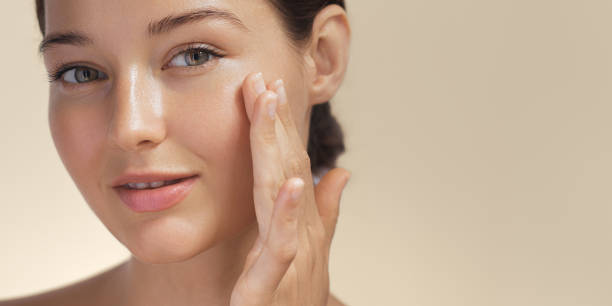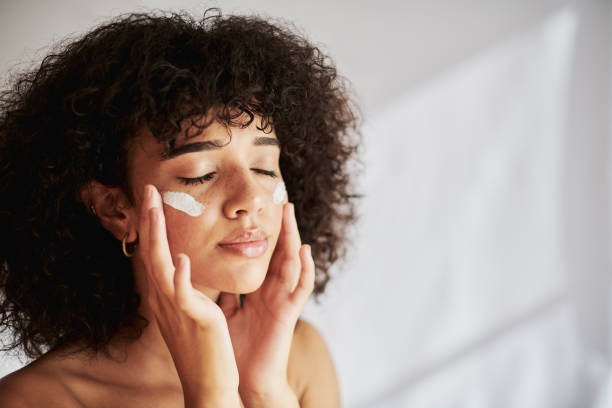Choosing Fragrance-Free Options for Sensitive Skin Types
Fragrance can be a common trigger for irritation in sensitive skin, so choosing fragrance-free products across skincare, makeup and haircare can reduce flares and make daily routines gentler. This article explains what "fragrance-free" means, how to read labels, and which product types—like moisturizers, serums, sunscreen, and cosmetics—are safest for reactive skin.

This article focuses on practical guidance for selecting fragrance-free products when you or someone you care for has sensitive skin. Many people assume “fragrance-free” guarantees no reactions, but understanding labeling, ingredients, and formulation choices helps reduce irritation risks. The guidance here covers everyday categories—skincare, makeup, haircare, serums, moisturizers, and sunscreen—while noting sustainability, crueltyfree practices, and packaging considerations to help informed choices.
This article is for informational purposes only and should not be considered medical advice. Please consult a qualified healthcare professional for personalized guidance and treatment.
Skincare: choosing fragrance-free basics
When building a fragrance-free skincare routine, prioritize simple formulations with fewer potential irritants. Look for cleansers, moisturizers, and toners labeled “fragrance-free” or “unscented”; note that “unscented” products may still contain masking fragrances, so ingredient review matters. For sensitive skin, focus on barrier-supporting components such as ceramides, glycerin, and niacinamide, and avoid high concentrations of essential oils even if marketed as natural. Also consider how packaging preserves product stability—airless pumps can limit oxidation and contamination, which helps maintain mild formulations over time.
Ingredients: what to watch on the label
Reading ingredient lists is essential. Fragrance may be listed as “parfum” or “fragrance,” but other names like limonene, linalool, or botanical extracts can also cause reactions. Preservatives, solvents, and certain alcohols may irritate sensitive skin, so balance safety needs with irritation risk. For makeup and cosmetics, look for formulations specifically tested for sensitive skin or labeled hypoallergenic; check for the presence of preservatives such as phenoxyethanol or parabens if you react to them. If in doubt, patch testing a small skin area helps identify individual triggers.
Dermatology: when to seek professional advice
If irritation persists despite switching to fragrance-free products, consult a dermatologist or qualified skin specialist. A clinician can distinguish between allergic contact dermatitis and irritant dermatitis, recommend patch testing, and suggest prescription or medical-grade moisturizer or serum options. Dermatologists can also advise on sun protection needs—choosing a mineral-based sunscreen versus chemical filters might be recommended depending on sensitivity and existing skin conditions, and they can help tailor a routine that integrates therapeutic products safely with cosmetics.
Moisturizers and serums: selecting gentle formulations
Moisturizers and serums are central to managing sensitive skin. Choose fragrance-free formulas that emphasize barrier repair ingredients—emollients, humectants, and occlusives in balanced ratios. Lightweight serums with low-concentration active ingredients (for example, stabilized vitamin C or low-dose retinoids) can be helpful, but only after ensuring tolerance. If you use cosmetics over these layers, allow each product to absorb fully to reduce interaction. Brands that disclose full ingredient lists and perform dermatological testing may reduce guesswork, and crueltyfree certifications address ethical preferences while formulation decisions stay focused on skin tolerance.
Sunscreen: options for reactive skin types
Sunscreen is non-negotiable for skin health, but many formulations include fragrances. For sensitive skin, mineral (zinc oxide or titanium dioxide) sunscreens are often recommended because they are less likely to cause irritation than some chemical filters. Look for fragrance-free labels and minimal added actives. Packaging matters: stick or pump formats can avoid contamination compared with jars you dip into. If you wear makeup, consider sunscreen-compatible primers or tinted mineral products that combine coverage and SPF without added scent.
Formulation, packaging, sustainability and crueltyfree factors
Formulation choices and packaging design both influence suitability for sensitive skin. Airless packaging, single-use sachets, and opaque containers help protect gentle formulations. Sustainability and crueltyfree values are important to many consumers; seek brands that publish ingredient sourcing, sustainable packaging initiatives, and crueltyfree certification while maintaining fragrance-free lines. Be aware that sustainability claims don’t automatically mean a product is safe for sensitive skin—some “natural” ingredients can be allergenic. Evaluate a product by its ingredient list and clinical testing data when available.
Choosing fragrance-free across haircare and cosmetics Haircare and cosmetics also affect facial and scalp sensitivity. Fragrance-free shampoos, conditioners, and styling products reduce scalp irritation and minimize transfer to the face. For cosmetics, opt for fragrance-free foundations, concealers, and eye products specifically labeled for sensitive skin; tinted serums and balm-formulas may be suitable alternatives. Always test new products on an inconspicuous area and introduce one new item at a time to isolate reactions.
Conclusion Selecting fragrance-free options for sensitive skin involves more than avoiding the word “fragrance”: it requires reading ingredients, considering formulation and packaging, and sometimes consulting dermatology for persistent issues. Prioritize gentle, barrier-supporting ingredients in moisturizers and serums, choose mineral-based sunscreens when appropriate, and apply the same care to makeup and haircare products. Combining fragrance-free choices with awareness of sustainability and crueltyfree practices can align skin safety with personal values without sacrificing efficacy.






